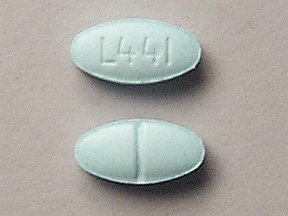
Sleep Aid Coupons & Savings Card – Discount Prices from $4.95
Doxylamine is an antihistamine, used to relieve symptoms of allergy, hay fever, and the common cold. This medication works by blocking certain natural substances (histamine, acetylcholine) that your body makes. This effect helps to relieve allergy/cold symptoms such as watery eyes, runny nose, and sneezing. Doxylamine is also used to help you relax and fall asleep. Cough-and-cold products have not been shown to be safe or effective in children younger than 6 years. Do not use this product to treat cold symptoms in children younger than 6 years unless specifically directed by the doctor. Also, do not give the 25 milligram tablets to children younger than 12 years, unless directed by the doctor. Ask your doctor or pharmacist for more details about using your product safely. These products do not cure or shorten the length of the common cold and may cause serious side effects. To decrease the risk for serious side effects, carefully follow all dosage directions. Do not use this product to make a child sleepy. Do not give other cough-and-cold medication that might contain the same or similar ingredients . Ask the doctor or pharmacist about other ways to relieve cough and cold symptoms (such as drinking enough fluids, using a humidifier or saline nose drops/spray).
Our Sleep Aid coupons are free to use. You can print the coupon, email it to yourself, or receive the Sleep Aid coupon via text message. To get your free discount, show the pharmacist your Sleep Aid savings card which has the discounted coupon price. Use our filters below to edit the prescription box to match your needs. The Sleep Aid prices will update based on your prescription needs. Above our Sleep Aid coupons, you can change the location to see pharmacy prices in other areas. Our prescription discount card will update online with the specific pharmacy costs associated with your edits. Be sure to text, email, or print the Sleep Aid savings card code that you need after editing the prescription box and location field. Show the discount card to your pharmacist before paying.
My prescription
Edit
25MG, Sleep Aid (30 Tablets)
Select pharmacy

Walgreens
$4.95
COUPON PRICE
Albertsons
$6.87
COUPON PRICE
Walmart
$13.48
COUPON PRICESleep Aid savings card
Show this card to your pharmacist
Walgreens
$4.95
BIN
ID
PCN
GRP
015995
LHFC695892
GDC
GDRX
Powered by
Doxylamine is an antihistamine, used to relieve symptoms of allergy, hay fever, and the common cold. This medication works by blocking certain natural substances (histamine, acetylcholine) that your body makes. This effect helps to relieve allergy/cold symptoms such as watery eyes, runny nose, and sneezing. Doxylamine is also used to help you relax and fall asleep. Cough-and-cold products have not been shown to be safe or effective in children younger than 6 years. Do not use this product to treat cold symptoms in children younger than 6 years unless specifically directed by the doctor. Also, do not give the 25 milligram tablets to children younger than 12 years, unless directed by the doctor. Ask your doctor or pharmacist for more details about using your product safely. These products do not cure or shorten the length of the common cold and may cause serious side effects. To decrease the risk for serious side effects, carefully follow all dosage directions. Do not use this product to make a child sleepy. Do not give other cough-and-cold medication that might contain the same or similar ingredients . Ask the doctor or pharmacist about other ways to relieve cough and cold symptoms (such as drinking enough fluids, using a humidifier or saline nose drops/spray).
Our Sleep Aid coupons are free to use. You can print the coupon, email it to yourself, or receive the Sleep Aid coupon via text message. To get your free discount, show the pharmacist your Sleep Aid savings card which has the discounted coupon price. Use our filters below to edit the prescription box to match your needs. The Sleep Aid prices will update based on your prescription needs. Above our Sleep Aid coupons, you can change the location to see pharmacy prices in other areas. Our prescription discount card will update online with the specific pharmacy costs associated with your edits. Be sure to text, email, or print the Sleep Aid savings card code that you need after editing the prescription box and location field. Show the discount card to your pharmacist before paying.
Our Sleep Aid coupons are free to use. You can print the coupon, email it to yourself, or receive the Sleep Aid coupon via text message. To get your free discount, show the pharmacist your Sleep Aid savings card which has the discounted coupon price. Use our filters below to edit the prescription box to match your needs. The Sleep Aid prices will update based on your prescription needs. Above our Sleep Aid coupons, you can change the location to see pharmacy prices in other areas. Our prescription discount card will update online with the specific pharmacy costs associated with your edits. Be sure to text, email, or print the Sleep Aid savings card code that you need after editing the prescription box and location field. Show the discount card to your pharmacist before paying.
Sleep Aid FAQs
Using the SaveHealth discount card, what is the price of Sleep Aid without insurance?
Using the SaveHealth discount card, the price of Sleep Aid without insurance is $4.95.
What is the price of Sleep Aid at Walgreens?
The price of Sleep Aid at Walgreens is $4.95.
What is the price of Sleep Aid at Walmart?
The price of Sleep Aid at Walmart is $13.48.
